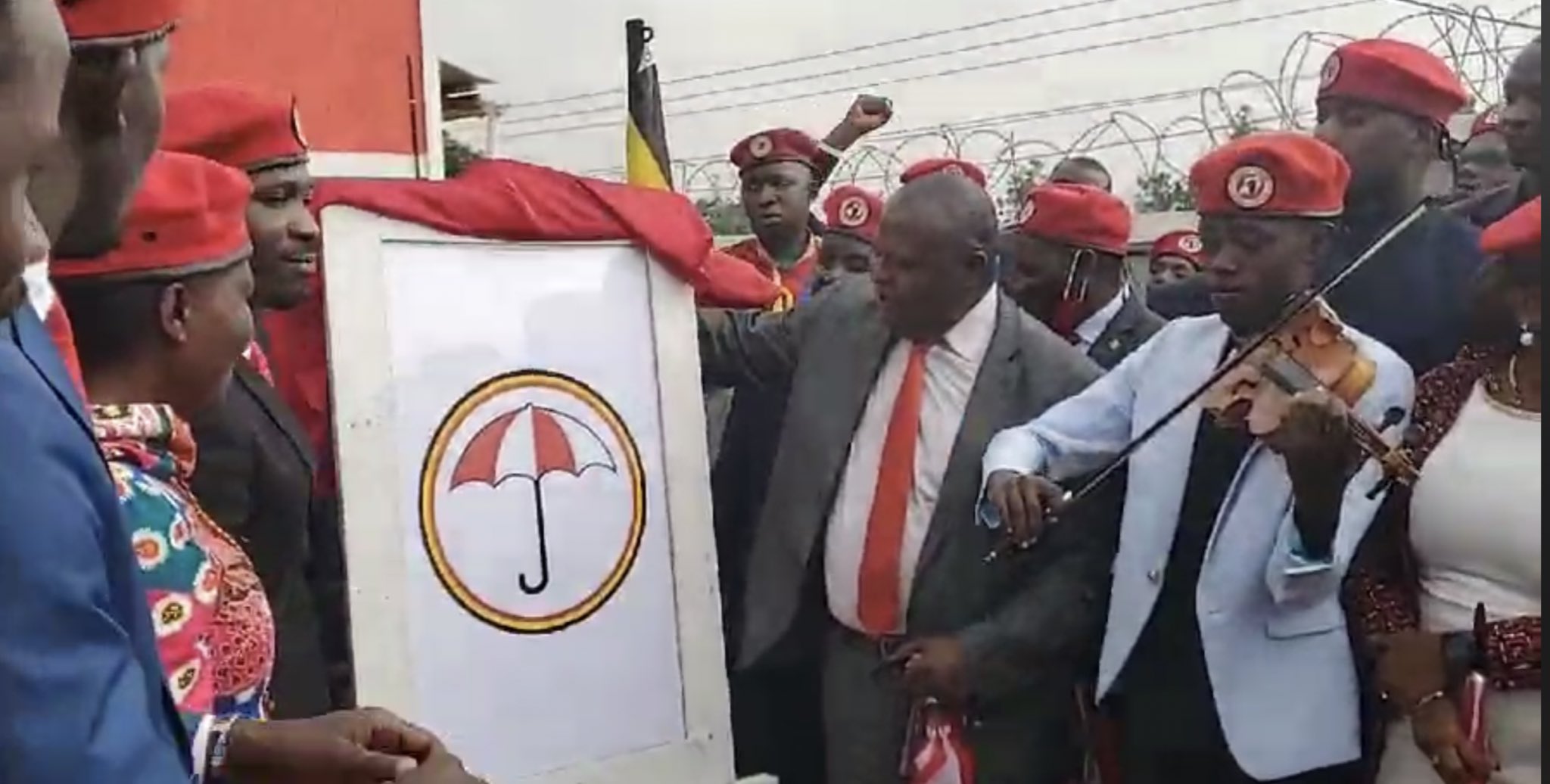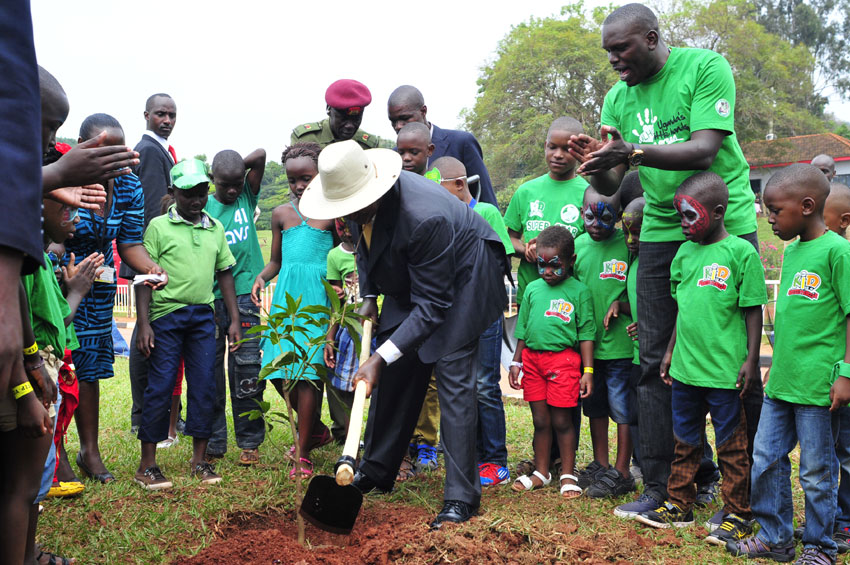
The Ecological Party of Uganda Responds to Election Results
Joshua Allen / Global Green News
(March 2, 2021) — After yet another a sweeping electoral victory for the National Resistance Movement (NRM), launching President Yoweri Museveni into a sixth term, the Ecological Party of Uganda (EPU) reflects on its campaign, the discrepancies that occurred, and what their next steps will be.
Seeking to successfully field candidates for the first time since 2009, the EPU and leader Charles Bbaale were presented a myriad of challenges from head offices and commissions throughout the campaign.
President of the Ecological Party of Uganda, Charles Bbaale, EPU Executive Director Dorothy Nalubega, and parliamentary candidate for the Busiro East district, Irene Nassolo, gave their reactions and opinions to Global Green News concerning the election, and the difficulties of the electoral process in Uganda.

Ugandan artist and activist Bobi Wine.
The Electoral Process
Being a fairly new party in any country comes with one fundamental issue… funding. EPU Executive Director, Dorothy Nalubega stated that the EPU receives some funding through the East African Greens Federation, but not enough to run a political campaign on the same scale as other parties. Often, EPU candidates would pay out of their own pockets for their nomination fees, posters, and other campaign trail expenses.
Nalubega goes on to state that because of the lack of funds in the EPU “it was very expensive to make posters, pay radio, TV airtime and to get social media assistants…this paved way for the rich ruling government party, NRM (National Resistance Movement) and NUP (National Unity Party).”
Along with funding issues, the EPU claims that the electoral process is made exceedingly difficult for newer, smaller parties to succeed, to the point where one might question whether the Ugandan Electoral Commission purposefully made the process difficult.
EPU Leader Charles Bbaale stated that all the groundwork had been properly laid for himself to become an eligible candidate for the presidential race. He was second only to current President Museveni and the NRM in submitting the proper registration forms, and exceeded the required minimum of 100 registered supporters from 98 of Uganda’s 135 districts. All this having been completed, Bbaale stated that he was kept in the queue for five days, waiting on verification from the Electoral Commission, until the EPU was informed that the verification process had ended, and they were therefore unable to register Bbaale as a presidential candidate.
To add to the suspicion, both Bbaale and Nassolo pointed out the fact that the leader of Uganda’s Democratic Party, Norbert Mao had applied and been admitted by the Electoral Commission all in less than one day before the closure of the verification process. Knowing this, along with the fact that Mr. Mao had verified support from only 34 districts at the time, led the EPU to question the closed-door process at the Electoral Commission, as well as its supposed impartiality.

The Election
The EPU states that another term under the rule of President Museveni is unfortunate, albeit unsurprising. Having been in office since 1986, President Museveni has won 6 consecutive presidential elections, all with landslide victories.
Allegations of ballot rigging and voter disenfranchisement have been hurled at Museveni more than once. Presidential candidates, such as the leader of the Forum for Democratic Change (FDC), Kizza Besigye (2001, 2006, 2011, 2016), and National Unity Party (NUP) leader, Bobi Wine (2021), have accused Museveni’s party of militant intimidation of voters after their respective elections, resulting in both candidates being placed under house arrest at the time.
Foreign observers and other officials have reported the ‘irregularities’ seen during the ballot process, including, according to the BBC, “an atmosphere of fear and intimidation”.
Initially bent on pursuing legal action after the 2021 election, Wine withdrew his challenge on February 22, claiming that “the courts are not independent”. This same sentiment of preferential treatment towards Museveni was echoed by Bbaale, as he stated that the complaint filed by the EPU, after having been queued for 5 days before the closure of the nomination process, was rejected by Justice Simon Byabakama, without reasonable explanation.

Next Steps
The EPU stated that this past election has given the party a good understanding of how to prepare and present themselves in the 2026 elections. Bbaale, Nalubega and Nassolo all agree that the EPU will work hard to fundraise for the 2026 election, which will go towards campaign expenses, and public appearances, which they maintain are the keys to increasing the Green movement in Uganda.
Along with this, the party will seek out and train new, young members, who will be educated on the core principles of the EPU: Ecological wisdom, social justice, participatory democracy, non-violence, sustainability, and respect for diversity. Bbaale, Nassolo and Nalubega all expressed optimism about the future of the party. According to them, the party has “the best ideology and manifesto that [is] inclusive and sustainable in nature”. The EPU hopes that, in the future, their party will serve as a conduit for change in Uganda.
Posted in accordance with Title 17, Section 107, US Code, for noncommercial, educational purposes.